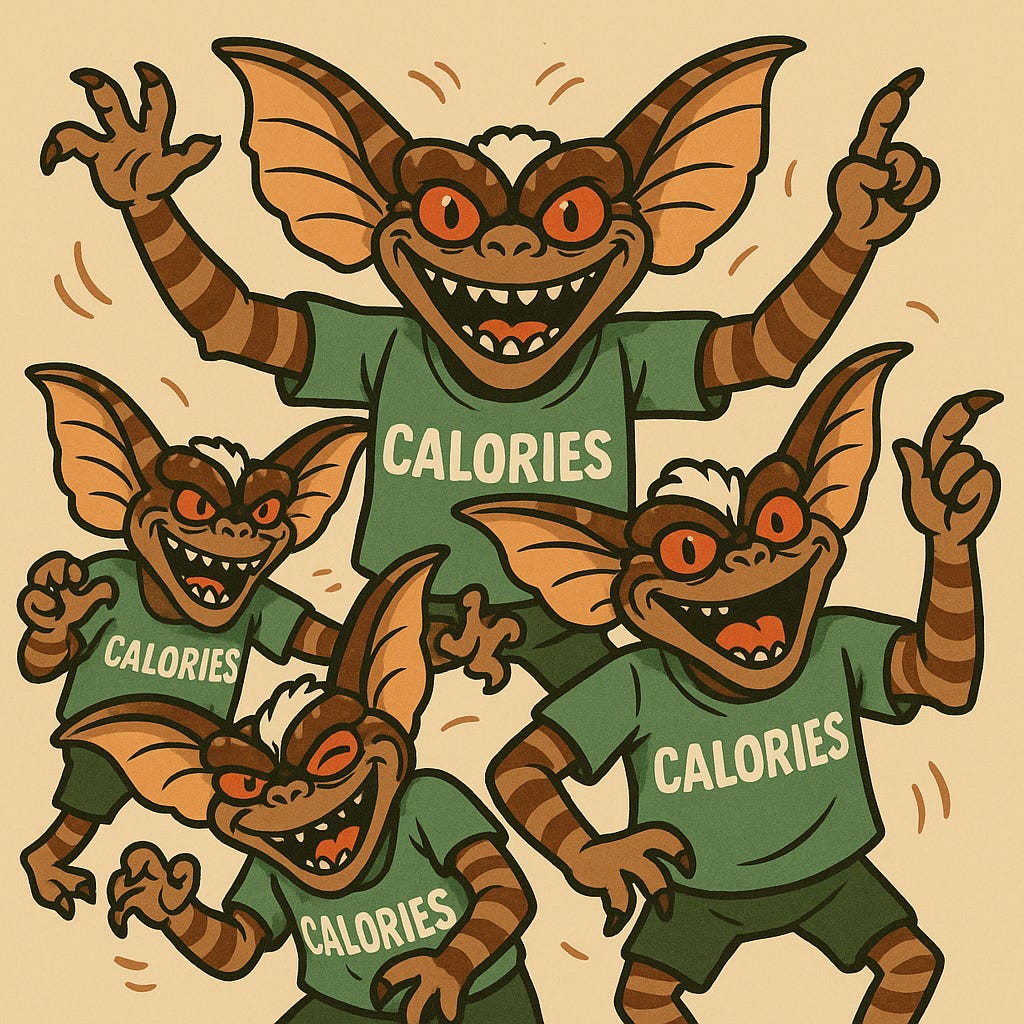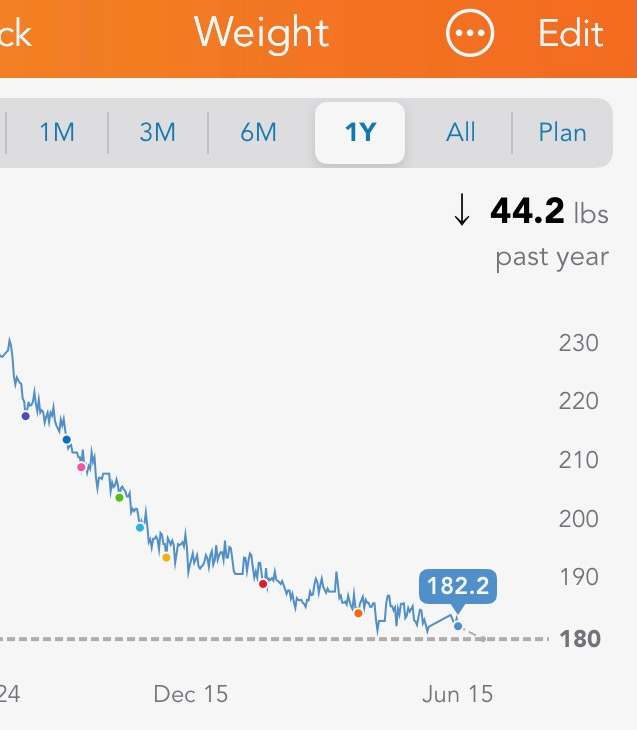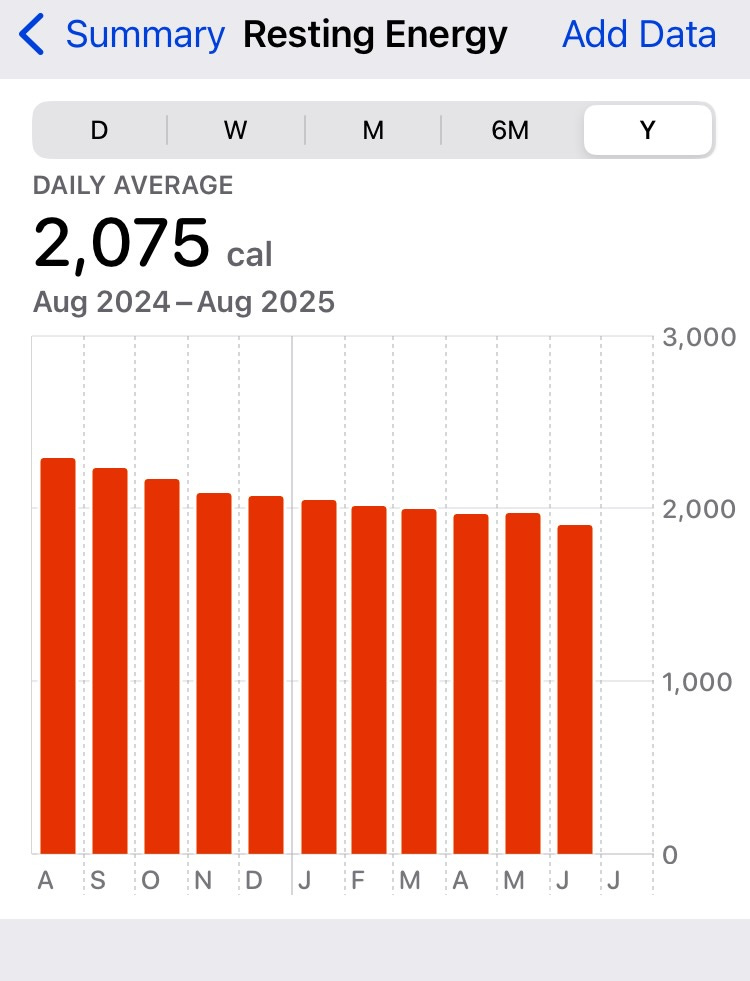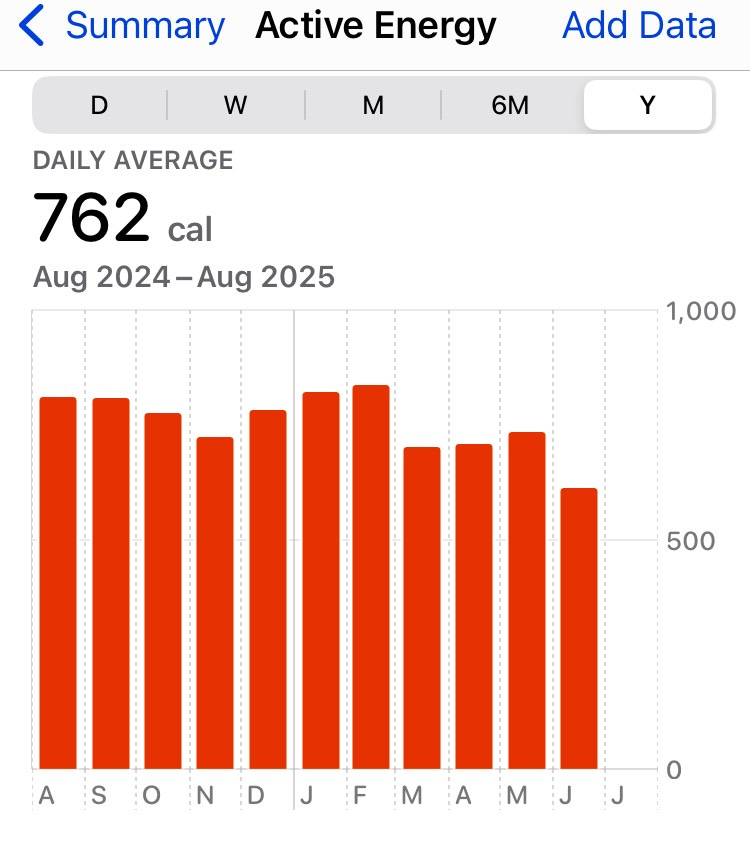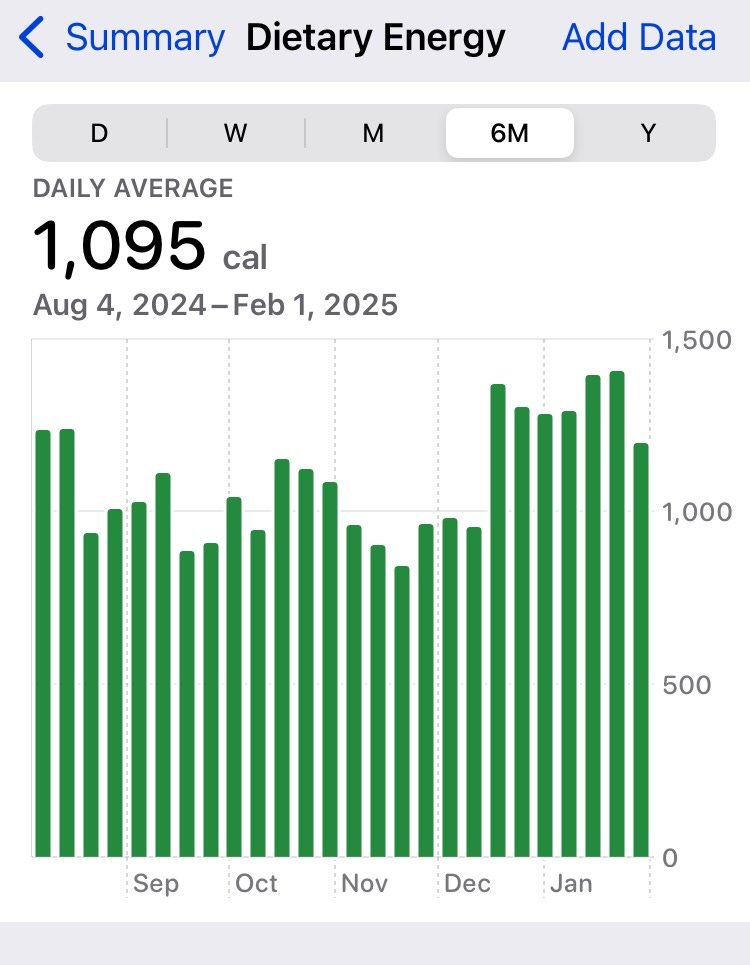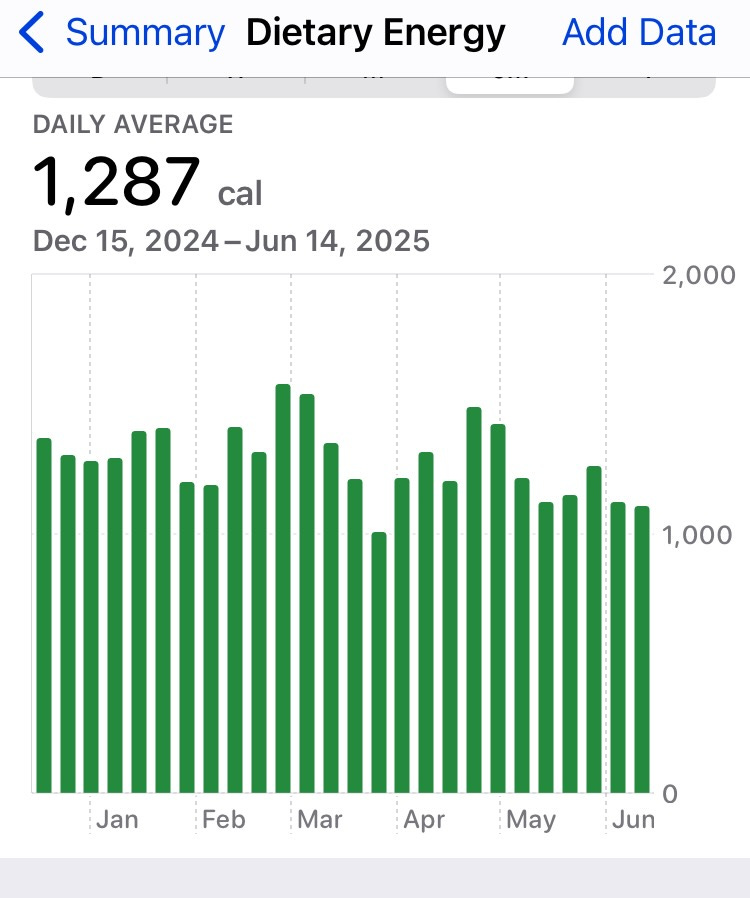Weighty Matters, #2: Why Is It So Hard To Lose Weight? It's All About The Calories--And The Gremlins
What I learned about looking at data from my weight loss journey absolutely shocked me--and may shock you as well: It's a lot more difficult than what we have been led to believe.
—With thanks, once again, to ChatGPT
It’s all about the gremlins, those nasty little creatures called calories that sneak up on us and undo the best of our intentions. And what I have learned from my analysis is those gremlins have a much greater impact than I ever imagined.
Most of us have a long generally unsatisfying, love-hate relationship with calories and our weight.
We have struggled for years, maybe decades, to get to some semblance of an “ideal” goal to achieve a healthy weight. Somehow we always come out on the short end of that stick: success met with relapse, again and again and again over a lifetime.
Now we have something new, something different, something more effective to boost our odds of success. Millions of us have taken new medicines called GLP-1s that help us achieve that long elusive goal and improve the outlook for our health.
Unfortunately, big gaps remain:
Although there is a lot of research about how the drugs the work and the benefits they achieve, there is a paucity of information about many aspects of dieting:
· Why does weight loss seem to plateau over time, even when I continue to severely restrict my calories?
· How many calories must I restrict to lose a pound?
· Does that restriction change over time?
· Will I be able to increase my calories once I get to my goal, or must I continue this severe dietary/calorie restriction for how long?
Maybe the specialists know this stuff, however I am a physician, and those messages haven’t reached me just yet.
I am going to put on my doctor data hat and do what I shouldn’t do: share my own personal experience and anecdotal observations, which quite honestly shocked even me.
Hopefully someone will tell me there is research to confirm or refute what I am about to disclose. That would be helpful and welcome.In the meantime, my personal observations are all that I am left with to answer some very important questions to which we should already know the answers.
Let’s start this journey with a graph:
This is a graph of my weight since I started taking Zepbound in early August. The pattern may be familiar to many of you: first a rapid decline in my weight and then a clear “glide path” at a much lower rate of loss as I come into goal.
The basic question is: Why is it so difficult—especially as I approach my weight goal—to lose that last couple of pounds? After all, I stuck closely to plan through the entire time.
What I discovered amazed me. I didn’t realize that my body had changed as much as it had.
I went back and arbitrarily divided my journey into two phases: the first six months beginning in August and the last six months beginning in December. (Note there is some overlap: I have been on the medication for about 10.5 months, and I plan to repeat this exercise when I have a year’s worth of data. But for today, this is the best I can do.)
Daily weights are a relatively objective measurement. In fact, it is the defining measurement: I take a “first morning” check on the scale every day I have a scale available, which is almost 100% of the time.
Next on my “hit parade of data” is the health information from my Apple watch. I also combined the data from the watch with another of my compulsive data gathering activities: information I had been gathering on my diet/nutrition app.
For some time--and especially during my journey with the GLP1 medicine—I have monitored everything I eat—literally everything. (OK, maybe not EVERYTHING, but a whole heck of a lot of everything). I also measure almost everything I consume, either by weighing it on a kitchen scale or measure the volume using a measuring cup.
Hard to believe that I would take the time and focus to do that, but I do. I may not be 100% accurate but I am pretty good about it. And I always must keep in mind that the perfect should not be the enemy of the good. Good in this case is a lot of effort, and the results remain pretty good if not perfect.
Which brings me to another fundamental concept about the quality of the information I record every day:
The watch may not be perfect in its data gathering accuracy, and my diet record may also not be perfect. But for an exercise like this one, it is a darn sight better to have the information than not to have it.
What did I learn?
My weight initially fell rapidly then settled into a much slower decline as I now approach my personal goal.
There should be no surprise about that. We have known for some time that our metabolism “tightens up” a bit as we lose weight. Our bodies adjust to expending fewer calories in everyday activities and require greater restriction to achieve the same outcome per pound lost.
Some other things happen as well as our weights decline on diets:
The quick and easy losses are no longer there to lose. The water goes first, then the fat that is easier and quicker to go bye-bye, leaving more resistant fat as a storage source for energy. That type of fat is more difficult to lose.
Muscle mass also declines, even if you exercise and eat protein (although addressing those issues may mitigate some of that muscle loss).
Something else going on as well:
You need less energy to move that formerly overweight/obese body around in the first place, a reality that is born out in my analysis.
This graph shows the decline in my “inactive” calorie expenditure over time. “Inactive energy” is the energy required to fuel the basic metabolic functions that keep us alive. Think of it as your daily baseline requirement:
My “activity” calories also declined, not necessarily because I did less exercise but because my body doesn’t use as many calories for the “thinner” me than it needed to move around my formerly overweight body. In fact, on many days I need to do more exercise than I did before to achieve the same calorie goal:
Put those inactive and active calorie reductions together and I found I am “spending” about 200 fewer calories a day currently than I was when I first started my program. That is not an insignificant number.
What about energy intake, otherwise known as the calories you consume every day when you eat your food?
I have data for that as well.
Graph #1 shows the average calories/month I consumed for the first six months. Please focus your attention on the averages from August to December, and note that in December the dietary energy suddenly and consistently increases about 200 calories a day:
Graph #2 which shows the same number for the last six months (remember: there is some overlap in these data sets):
Part of that has to do with some diet “fatigue”—you can’t live on 1000 calories a day forever—but some of it has to do with changes in my diet starting in December that were deliberate when I made the decision to increase the protein and fiber in my diet to meet recommended daily goals. It’s hard to do that on 900 calories/day. From a nutrition point of view these changes are supposed to be helpful. From a calorie point of view, they have a cost, namely the aforementioned 200 calories a day.
Even with those changes, I was still only consuming 1100-1200 calories a day and burning 2500-2800 on most days. That’s a deficit of anywhere from 1300 to 1700 calories a day, or close to 10,000-12000 calories a week comparing energy intake to energy output.
My training tells me a pound of fat contains 3500 calories. If my deficit calculation is correct, I should be losing at least 2+ pounds a week. But that is not what has happened.
I gave up expecting a perfect correlation between calorie reduction and corresponding weight loss a long, long time ago. My “calorie/diet efficiency” was nowhere near 100%, which would mean one pound of weight for every 3500 calories I didn’t eat or expended through exercise.
Nope, not for me and I expect not for you.
That begs the question: What exactly is my “calorie/diet efficiency” on this program? How many calories do I have to remove from daily intake and exercise to lose a pound in real life?
What I found through this analysis was a real shocker. And although I am certain my calculations are not exactly on target, they provided an unwelcome insight and were downright frightening. They throw all my assumptions about dieting and restricting calories onto the trash heap of medical misinformation.
My calculation included six months calorie consumption over six months, compared to six months of total calorie expenditure.
If life were perfect, I would consistently lose a pound for every 3500 calories. Yes, I know that holidays, vacation, and occasional days of binging (yes, binging still occurs from time to time, but fortunately not often) are thrown in the mix, but those have a way of evening-out when you have six months of data.
Here, are the numer of calories it took to lose one pound of fact during the first six months of my journey with Zepbound:
8182 calories/pound lost
This is how many calories required to lose that same pound during the most recent six months. The difference is stunning:
13413 calories/pound lost
I kid you not.
Maybe my calculations aren’t 100% accurate, and if you have a better handle on this please share it with me. But this information fits pretty closely what I have experienced, and explains the plateau—and the frustration in reaching goal.
Another way of looking at this:
I define “calorie efficiency” as the percentage of calories it takes me to lose that pound vs that “generally accepted” 3500 calorie/pound number.
For the first six months, it works out to be:
42.8%
For the second six months:
26.1%
That means for the first six months, I had to “work” over twice as hard to lose a pound compared to general expectations. For the second six months, I had to “work” almost four times harder to lose that same pound compared to the “ideal” calorie restriction.
If you share my experience over years and decades that your efforts to cut back on your food just don’t bring the results you expected, you are correct. It is a lot more difficult than we have been told—for decades.
In all my years of dieting and exercising and adjusting no one has ever told me how hard it really is to lose that pound of fat. We have been told that over time as we continuously diet and gain and diet and gain our bodies tend to clamp down their metabolism making it more difficult to lose that pound. But no one has ever told me in black and white, clearly stated numbers how difficult it really is. And the net result is that many of us get frustrated, and we give up with our effort to continue.It is not much of a stretch to understand why so many of us get frustrated: things simply don’t work the way we have been told/taught.
It is important to mention here that this is only my personal experience. It may not reflect what happens to you. Each of us is unique in how we respond to diets and calorie restriction. For me, I now have a much better understanding of what it takes to get where I want/need to go when it comes to my weight.
It will be interesting to see how this evolves with time, as I “open” my diet to the increase in calories needed to maintain my weight. What is going to happen when I add that apple or peach to my program every day? Time will tell…
Losing weight is difficult. It is a lifelong commitment, a journey marked almost uniformly by commitment and enthusiasm which almost inevitably gives way to disappointment and struggle—and not much understanding of what it takes to lose weight over the long term.
What I have learned is that calorie expenditures change over time with age and weight loss, and trying to eat a more rationally composed diet comes with its own set of calorie penalties which then require adjustments elsewhere. Meanwhile, the finely tuned machines that represent our bodies are not idle participants in the process: they adjust over time to the challenges they are presented, for better or worse. All we can do is recognize the realities and respond accordingly.
Many have shared in the struggles of our weight loss journeys. Now, with a greater degree of optimism, we can come together to share and understand the dynamics of what is really happening to our bodies in ways we never could before. The lesson learned is that it takes a lot of effort even with GLP1 medications to achieve the results we expect over time, and for me at least time was not a friend as the calorie restriction required to lose that next pound increased dramatically.
Hamlet once said, “Perchance to dream…”
Perhaps--unlike Hamlet--we do not have to pass from this life to see some of our dreams come true. Nonetheless, today I find myself a bit chastened and a bit wiser as I discovered what it takes to get where I want to go and why that happens.
I know I am not alone on the journey. There is satisfaction knowing the reasons why diets become more difficult over time, even with some help from our GLP-1 friends. They help, but they don’t solve all the problems and the realities of the challenges we face.
Always remember: it is all about those nasty little gremlins called calories that somehow manage to show up in the night and undo much of our best intentions.
We can never forget the gremlins…


